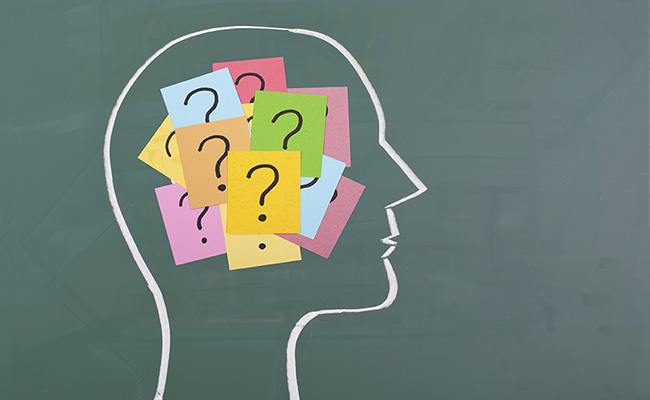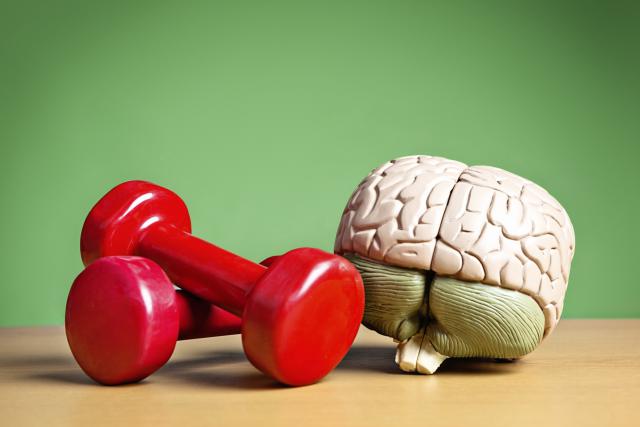Blog
- Prosocial Behavior Linked to Amygdala
- By Jason von Stietz, M.A.
- December 30, 2015
-

Getty Images Researchers studying social behavior of rhesus monkeys found amgydala activation linked to prosocial or charitable behavior. Findings suggested that when rhesus monkeys were faced with a task of either donating or withholding rewards to others, activation of the amgydala reflected the value of the rewards delivered. The study was discussed in a recent article in MedicalXpress:
The amygdala, a small structure at the front end of the brain's temporal lobe, has long been associated with negative behaviors generally, and specifically with fear. But new research from Michael Platt, the James S. Riepe University Professor in the psychology, neuroscience and marketing departments at the University of Pennsylvania, along with Steve Chang from Yale University and collaborators from Duke, shows this collection of nuclei can also influence positive social functions like kindness and what might be called charitable giving in humans.
Such a link could have implications for people with autism, schizophrenia or anxiety-related disorders, Platt said.
"What we're trying to do is both identify and understand the basic brain mechanism that allows us to be kind to each other and to respond to the experiences of other individuals," he said. "We're also trying to use that knowledge to evaluate potential therapies that could improve the function of these neural circuits, especially for those who have difficulty connecting with others."
To make this discovery about the amygdala, Platt and his team looked at the social behavior of rhesus macaques, a non-human primate species he has studied for 22 years both in the lab and in the wild, on an island off of Puerto Rico called Cayo Santiago. The researchers incorporated a task they developed four years ago as a way to observe how animals make beneficial decisions, a process Platt described as a reward-donation task.
"We have an actor monkey and a recipient monkey. The actor monkey learns that different-colored shapes on the screen are associated with a reward that can be delivered to himself, to the monkey next to him, to both or to nobody at all," he said. "They learn that over a couple of weeks."
Once the researchers determine the monkeys understand the task, based on how quickly the macaques respond to the rewards, they then present the actor monkey with choices and their accompanying potential rewards. The primates can keep the reward (in this case, a squirt of juice), share it, give it away or let it go to waste.
"Generally our actor monkeys prefer to reward the other monkey rather than let it go unclaimed," Platt said. Relationship status matters, too. "They are more likely to give to those they're more familiar with," he added, "and also to monkeys subordinate to them. The social relationships shape how prosocial the actor monkeys are."
Simultaneous to watching the monkeys' behavior, Platt and his colleagues recorded the neural activity of the amygdala of each animal, to note any correlations between what's happening in the brain and their outward actions. They found that neural activity in the amygdala reflected the value of the recipient's reward in the same way it reflected the value of the reward for the actor. The scientists could predict when actors would give rewards to the recipients based on these neural responses.
When oxytocin was introduced, behaviors changed rapidly. Oxytocin is a hormone linked to social bonds between individuals. In animals, it's been shown to create strong ties between mother and offspring, as well as male and female partners in certain monogamous animals. Though not definitive, research on how oxytocin affects humans has, in some cases, shown to help those with autism better read and understand social cues.
"We don't really know how it works in people. It's very difficult to study. When people inhale oxytocin, there is a change in blood flow to the amygdala, which we think might be involved in making people kinder and more receptive to others," Platt said. In his experiment, the monkeys receiving oxytocin became more willing to give to other monkeys and paid more attention to them after offering the rewards.
Rhesus macaques offer a valuable comparison to humans because the animals model many of the social behaviors in which humans engage. They also live in large social groups and form what Platt described as long-term social bonds.
"Not only with relatives but non-relatives, too. You can think of these as friendships or alliances, and they work hard to maintain them," he said. "Just like humans, the stronger these bonds the monkeys have, the more successful they are. Monkeys with more friends and better friends live longer and have more offspring."
Thanks to funding from the Simons Foundation, the next phase of this research will focus on the part of the brain that identifies social context, for example, determining who is nearby, for what reason and what effect each decision will have on them.
Read the original article Here
- Comments (0)
- Social Decision-Making in Autism
- By Jason von Stietz, M.A.
- December 23, 2015
-

Getty Images It is widely believed that individuals with autism lack the capacity to read social cues. However, recent findings suggest autism affects not how social information is processed but how the information is used in decision making. The study was discussed in a recent article in MedicalXpress:
Scientists at the Max Planck Institute of Psychiatry in Munich together with colleagues in Cologne and Zürich have used mathematical models to explain differences in social behaviour associated with autistic personality traits. They show that autistic traits do not – as previously thought – stop the individual from "reading" social cues, but instead affect how social information is used in making decisions. This new understanding provides a new basis for future research that will improve therapies for people with autism.
Autism spectrum disorder is a common psychiatric disorder that is characterized from childhood onwards by major impairments in social interaction and communication. About one half of autistic individuals are "high-functioning" as they have no intellectual impairment. However, all are severely limited in their social and professional life, which is why so many people with autism also suffer from depression. It has been suggested that autistic individuals may not "read" social cues and as a result do not respond to them properly. Alternatively, it has been suggested they are unable to empathize, thereby leading to social problems.
Leonhard Schilbach, consultant psychiatrist and Research Group leader at the Max Planck Institute of Psychiatry, explains "we have shown in this study that autistic trait-related differences in social behaviour are not due to a general inability to process social cues, but are related to the way social information is taken into account during decision-making".
It is thought that reading cues and making decisions involve an interplay between "expectations" generated in higher brain areas and signals from lower sensory brain areas. Normally, the behaviour of others that causes the sensory signal is interpreted in comparison to such "expectations". This allows individuals to regulate their behaviour in a context-sensitive and socially adequate way. In contrast to this, autism might be the result of an imbalance in this interplay, with a stronger reliance on sensory signals.
Computational modeling uses mathematical descriptions to characterize the variables that underlie social behaviour. Previous research has shown that humans do not only "read" the overt behaviour of others, but also the intentions that underlie and motivate the behaviour and use this information when making. Lead scientist Leonhard Schilbach explains, "we used a computational approach to investigate whether differences in social decision-making observed in people who are high or low in autistic traits are related to an inability to monitor others' intentions".
Schilbach and colleagues found that higher autistic traits do not impair the ability to process social information per se, but rather how this information influences decision-making. Furthermore, it was observed that individuals high in autistic traits found it harder to optimally use social information during unpredictable situations. It is hoped that this new insight into the autism spectrum will provide improved interventions for patients. Furthermore, the computational approach used in this study could also help to characterize social difficulties in other psychiatric disorders.
Read the article Here
- Comments (1)
- Enhancing Experience-Dependent Neuroplasticity
- By Jason von Stietz, M.A.
- December 19, 2015
-

Getty Images Experience-dependent neuroplasticity, the brain’s capacity to change in response to environmental stimuli and learning, is a fundamental property of the brain. The impairment of this function in the brain is related to many psychiatric disorders including depression and bipolar disorder. Researchers recently studied the effect of D-cycloserine on the brain’s capacity for experience-dependent neuroplasticity (measured by EEG). The study was recently discussed in an article in MedicalXpress:
In a recent study published in the Proceedings of the National Academy of Sciences, a group of researchers from various U.S. colleges have collaborated to determine if augmenting the signaling of a particular brain receptor would boost neuroplasticity in adults. During early development, experience-dependent neuroplasticity actually interacts with genetic programming in order to establish the neuronal organization and functionally connected circuits that characterize the mature brain.
This basic circuitry is well established by early adulthood, but throughout the lifespan, adult brains depend on experience-dependent neuroplasticity to enable new behavior patterns. Given the general acceptance of the relatively new idea that neuroplasticity endures in adults, the ability to augment its mechanisms could yield new approaches to associated psychiatric disorders. Here, the researchers sought to determine if augmenting N-methyl-D-aspartate receptor (NMDAR) signaling would promote experience-dependent plasticity. They tested a drug called D-cycloserine (DCS) on a group of participants who were monitored via a recently developed EEG paradigm for changes in plasticity.
The participants, divided into groups that received either DCS or placebo, engaged in three cognitive tasks: A weather prediction task, an information integration task and an n-back task, once before administration of DCS or placebo, and again 31 hours later. They determined that participants who received DCS showed greater potentiation of plasticity following the high-frequency visual stimuli of the tests than did those who received placebo. "Our findings of enhanced acquisition of the weather prediction task and the information integration task are consistent with other findings of enhanced incremental learning following DCS administration, including on category learning, motor learning, and mental rotation learning tasks," the authors write.
They note that the performance of DCS participants on the n-back test, which was a spatial working memorytask, did not differ measurably from the performance of those receiving placebo. They note that this result is consistent with a growing body of evidence that the transient memory underlying working memory is modulated in a fundamentally different way than experience-dependent neuroplasticity.
While noting the limitation that the study was restricted to healthy young adults, the authors conclude that their results strongly suggest that enhancing NMDAR signaling augments experience-dependent plasticity in adult brains across a variety of tasks that leverage that ability. "These findings suggest exciting possibilities for using NMDAR agonists to help ameliorate plasticity deficits in neurodegenerative and psychiatric disorders. Our results complement a growing literature that suggests that DCS can enhance new learning during cognitive behavioral therapy interventions and cognitive training programs."
The researchers suggest that parallel studies in older adults and patient groups are an obligatory next step in assessing DCS as a therapeutic intervention for psychiatric disorders.
Read the full article Here
- Comments (0)


 Subscribe to our Feed via RSS
Subscribe to our Feed via RSS